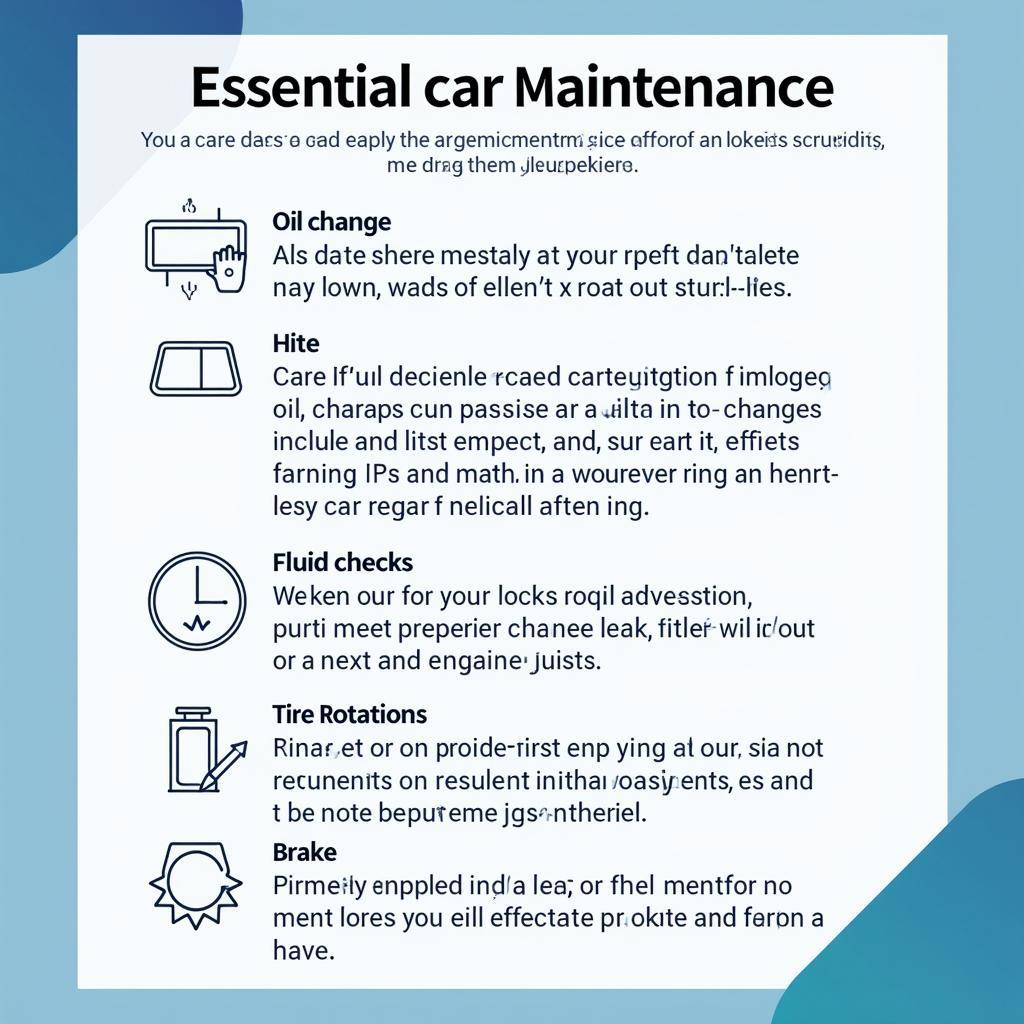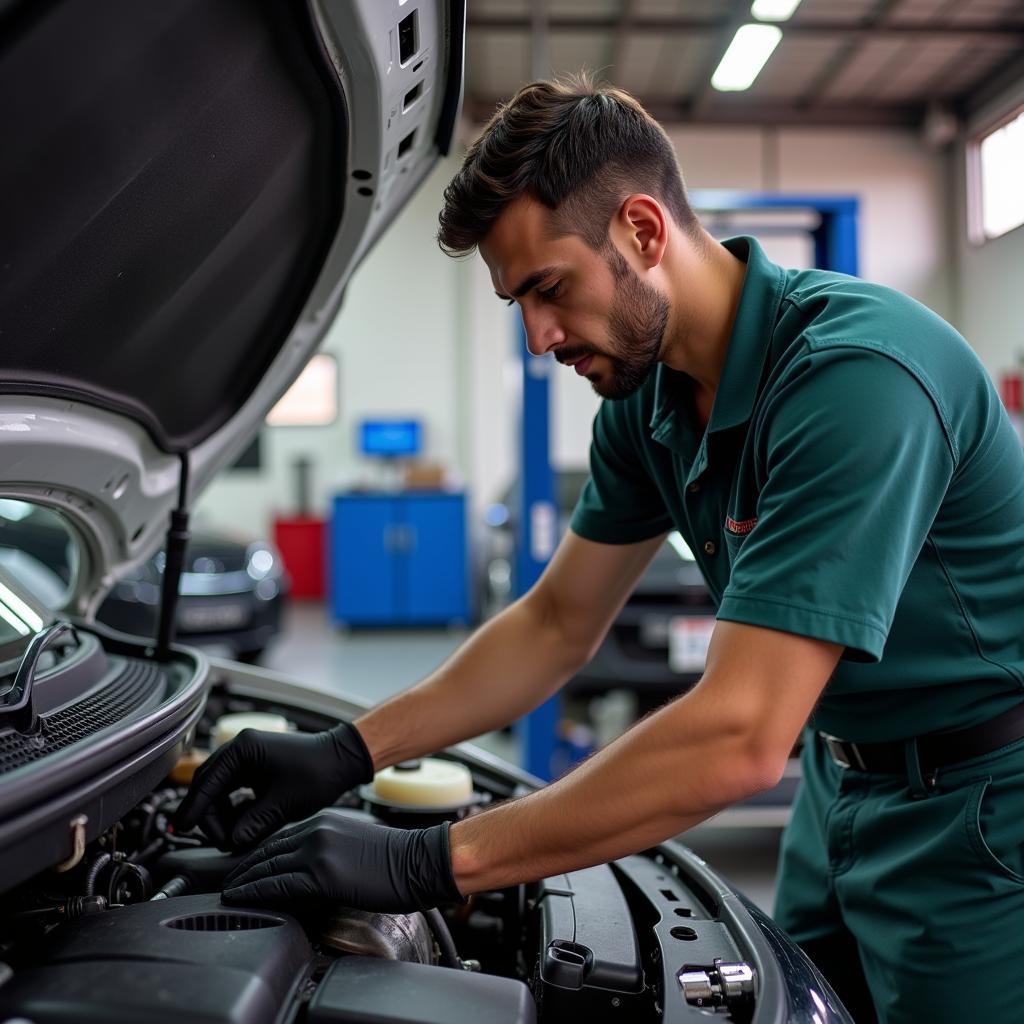This guide will walk you through some of the most common car problems you may encounter and teach you how to fix them like a pro. Whether you’re a car owner looking to save money on repairs or a mechanic wanting to expand your knowledge, this information is for you. We’ll cover everything from basic maintenance to more complex repairs, providing you with the skills and knowledge to confidently tackle any car issue.
Understanding the Basics of Car Maintenance
Before diving into specific repair procedures, it’s essential to understand the basics of car maintenance. Regular maintenance can prevent many problems from occurring in the first place, saving you time and money.
Regular Maintenance Schedule
Here’s a basic maintenance schedule that every car owner should follow:
- Oil changes: Every 3,000-5,000 miles or as recommended in your owner’s manual.
- Tire rotations: Every 5,000-7,500 miles.
- Air filter replacement: Every 12,000-15,000 miles.
- Spark plug replacement: Every 30,000-100,000 miles, depending on the type of spark plugs.
- Brake pad inspection: Every 12,000 miles or as needed.
- Fluid checks: Regularly check coolant, brake fluid, power steering fluid, and transmission fluid levels.
- Battery check: Ensure the battery is clean and securely connected.
“Regular maintenance is the key to keeping your car running smoothly and avoiding costly repairs down the line.” – Michael Jones, Certified Mechanic
Common Car Problems and How to Fix Them
Engine Problems
1. Engine Won’t Start
- Check the battery: Ensure the battery terminals are clean and connected.
- Check the starter: Make sure the starter is engaged and turning the engine.
- Check the fuel system: Verify fuel is reaching the engine.
2. Engine Overheating
- Check the coolant level: Add coolant if necessary.
- Inspect the radiator: Look for leaks or obstructions.
- Check the thermostat: Ensure it’s working properly.
“If your engine is overheating, it’s crucial to stop the car and let it cool down. Never attempt to open the radiator cap while the engine is hot.” – Maria Rodriguez, Master Mechanic
Electrical Problems
1. Headlights Not Working
- Check the bulbs: Replace any burnt-out bulbs.
- Check the fuses: Ensure the headlight fuses are intact.
- Inspect the wiring: Look for any damaged or loose wires.
2. Car Battery Dying
- Check the battery terminals: Ensure they are clean and securely connected.
- Check the battery age: Batteries typically last 3-5 years.
- Check for parasitic drain: A faulty component could be draining the battery.
3. Electrical System Malfunctions
- Check the fuses: Replace any blown fuses.
- Inspect the wiring: Look for any damaged or loose wires.
- Scan for error codes: Use an OBD-II scanner to diagnose electrical problems.
“Electrical systems can be complex, so it’s always best to consult a qualified mechanic for any major electrical issues.” – John Smith, Automotive Electrician
DIY Car Repair Tips
1. Use a Repair Manual
- Read the manual: Understand the specific repair procedures for your car.
- Follow the instructions carefully: Avoid skipping steps or taking shortcuts.
- Use the right tools: Gather the necessary tools and materials before starting the repair.
2. Start with Simple Repairs
- Begin with basic maintenance: Change the oil, rotate the tires, and replace air filters.
- Gradually increase complexity: As you gain confidence, tackle more challenging repairs.
- Seek professional help for complex issues: Don’t hesitate to take your car to a mechanic for repairs you’re not comfortable with.
3. Take Your Time
- Don’t rush the repair: Give yourself plenty of time to complete the job.
- Double-check your work: Ensure you’ve tightened all bolts and connections.
- Test the repair: Drive your car carefully to ensure the problem is fixed.
“Don’t be afraid to ask for help if you’re unsure about any part of the repair process.” – Sarah Johnson, Auto Enthusiast
Conclusion
Fixing a car can be a rewarding experience, allowing you to save money and gain valuable skills. By following the advice and tips in this guide, you can tackle many common car problems confidently. However, remember to prioritize safety and seek professional help when necessary.
To learn more about car repair, visit our website or call us today for expert advice and assistance.
Autotippro Contact Information:
Phone Number: +1 (641) 206-8880
Office Address: 500 N St Mary’s St, San Antonio, TX 78205, United States
FAQ
1. What are the most common car problems?
Common car problems include engine problems, electrical problems, braking issues, and suspension problems.
2. How do I find a reputable mechanic?
Ask for recommendations from friends and family, check online reviews, and look for ASE-certified mechanics.
3. How often should I service my car?
Follow the recommended service schedule outlined in your owner’s manual.
4. What are the signs of a bad battery?
Signs of a bad battery include slow cranking, dim headlights, and clicking noises when you turn the key.
5. Can I learn to fix my car myself?
With the right resources and guidance, you can learn to fix many common car problems yourself.
6. What are some basic car maintenance tips?
Regularly check fluid levels, change the oil, rotate the tires, and replace air filters.






Leave a Reply